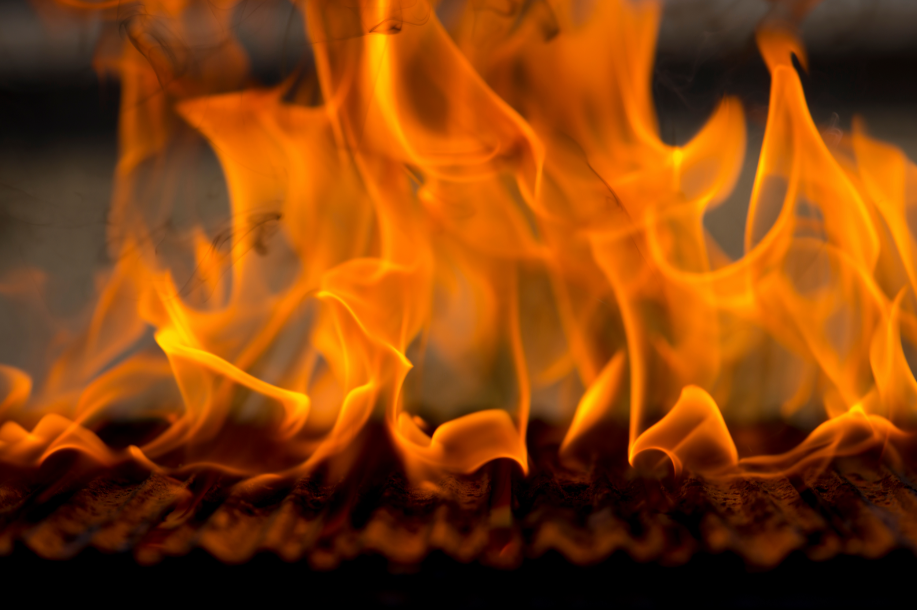Grill Fires: Causes and Prevention Strategies
Grilling is a cherished pastime, especially in the warmer months when outdoor cooking can help keep your home cool, bringing together families and friends over delicious meals. However, it's important to remember that cooking on a barbecue grill carries potential fire safety issues, including the potential for grill fires, which can pose significant dangers to both lives and property. Southeast Restoration of North Metro Atlanta, with its expertise in fire damage restoration and a strong commitment to community safety, is dedicated to helping individuals understand and mitigate the dangers associated with grilling, ensuring safe and fun gatherings.
In order to keep you informed and prepared to prevent these incidents, the following information covers the common causes of grill fires, the different types of grills and their unique hazards, and grill fire prevention.
Common Causes of Grill Fires
Understanding the common causes of barbecue grill fires is crucial for safe grilling practices.
- Grease buildup, one of the primary culprits when grilling any kind of food, especially meat such as steak or hamburger, can ignite with a small spark.
- Faulty gas lines leading to the fuel tank, too, pose a significant risk, as leaks can lead to explosive situations when they come into contact with a flame.
- Leaving grills unattended, even for a short period, can lead to uncontrolled fires if flare-ups occur due to any number of things from an oil drip or a sudden gust of wind.
Regular maintenance and vigilance to prevent these common hazards are vital to ensure a safe and enjoyable grilling experience for everyone.
Types of Grills and Associated Risks
Barbecue grills come in various types, each with its unique risks. Gas grills, popular for their convenience, can be hazardous due to gas leaks or broken valves and connections to the propane tank. Charcoal grills, known for their smoky flavor, carry risks with the use of lighter fluids and wood chips and the potential for flying sparks. Electric grills require careful handling to avoid electrical hazards, and also still need to be watched carefully. It is important to understand these risks to ensure a safe grilling experience, no matter the barbecue grill type. Below are some important barbecue grilling safety tips.
Preventive Measures for Gas Grills
For the safe enjoyment of gas grills, Southeast Restoration of North Metro Atlanta recommends regular maintenance and vigilance. Checking for gas leaks before use by applying a soapy water solution to the hose and connections, can prevent dangerous situations. Cleaning the barbecue grill regularly is crucial to avoid grease buildup, which can catch fire. Ensuring the grill is properly ventilated and never left unattended while in use are key practices. These steps help maintain a safe grilling environment and prevent accidents.
Preventive Measures for Charcoal Grills
When using charcoal grills, it is important to adopt proper ignition techniques and safe charcoal storage to prevent accidents. Always use charcoal starter fluid sparingly and never add it to already lit coals to avoid flare-ups. Store charcoal in a dry area to prevent unexpected ignition. Ensure the grill is stable on a non-flammable surface and allow coals to cool completely before disposal. These simple yet effective measures can significantly enhance safety during charcoal grilling sessions.
Preventive Measures for Electric Grills
When using an electric grill, it's essential to follow safety guidelines to prevent fire incidents. Begin by placing the grill on a stable, non-flammable surface, away from any combustible materials. Ensure that the grill is in good working condition, with no frayed cords or damaged components. Never leave the grill unattended while in use, and keep a close eye on it at all times. Avoid overloading the grill with food, as this can lead to flare-ups. Additionally, keep a fire extinguisher nearby in case of emergencies, and familiarize yourself with its operation. By practicing these fire safety tips, you can enjoy your electric grill safely and minimize the risk of fire hazards.
Safe Grilling Practices
The importance of general safety practices for all grill types cannot be stressed enough. This includes ensuring the grill is placed on a stable, non-flammable surface away from buildings, including awnings and eaves on your home and garage, and wood decks. It is also especially important to keep the barbecue grill away from trees and other vegetation that may ignite flames, always supervising the grill when in use to prevent any unforeseen accidents. Having a readiness plan for emergencies, including keeping a fire extinguisher nearby for grease fires is also a good fire safety policy. Following these guidelines can help maintain a safe environment for everyone when outdoor cooking.
What To Do in Case of a Grill Fire
If a grill fire occurs, stay calm and act quickly.
- First, if it's safe, turn off the valve to the fuel tank on the propane grill, unplug the electric grill, or smother charcoal grill flames by closing the lid and vents.
- Never use water on a grease fire; instead, use baking soda or a fire extinguisher designed for grease fires.
- If the fire spreads or becomes unmanageable and begins to burn uncontrollably, evacuate the area immediately and call 911.
- Call a fire damage restoration company, such as Southeast Restoration to begin the cleaning and property restoration process.
Ensuring a Safe and Enjoyable Grilling Season With Southeast Restoration of North Metro Atlanta
Grilling is more than just outdoor cooking; it's a source of joy and an opportunity for bonding. However, ensuring these moments remain delightful and safe is crucial. Southeast Restoration of North Metro Atlanta plays a vital role in providing grill fire prevention tips and offering unwavering support and property restoration services in the unfortunate event of a grill fire. Their commitment ensures that families can continue to enjoy the BBQ grilling season, safeguarding both cherished memories and properties.
Southeast Restoration of North Metro Atlanta offers specialized emergency fire restoration services tailored to address the unique challenges posed by property damage caused by grill fires. With expertise in handling grill-related incidents, their team is equipped to restore properties affected by grill fire damage effectively. Services include thorough damage assessment, debris cleanup, removal of smoke and soot residues, odor elimination, structural repairs, and content restoration. Using advanced techniques and equipment, Southeast Restoration ensures prompt and comprehensive fire damage restoration, providing homeowners with efficient solutions and peace of mind throughout the process.
About Southeast Restoration
Southeast Restoration of North Metro Atlanta is dedicated to restoring lives and properties across North Metro Atlanta and beyond, specializing in comprehensive restoration services for water, fire, storm, and mold damage. With a strong commitment to compassion, integrity, and excellence, they strive to provide peace of mind to those affected by disasters. For professional restoration services that prioritize your safety and satisfaction, consider reaching out to Southeast Restoration of North Metro Atlanta. Their experienced team is ready to support you through challenging times, ensuring a seamless path to recovery.



